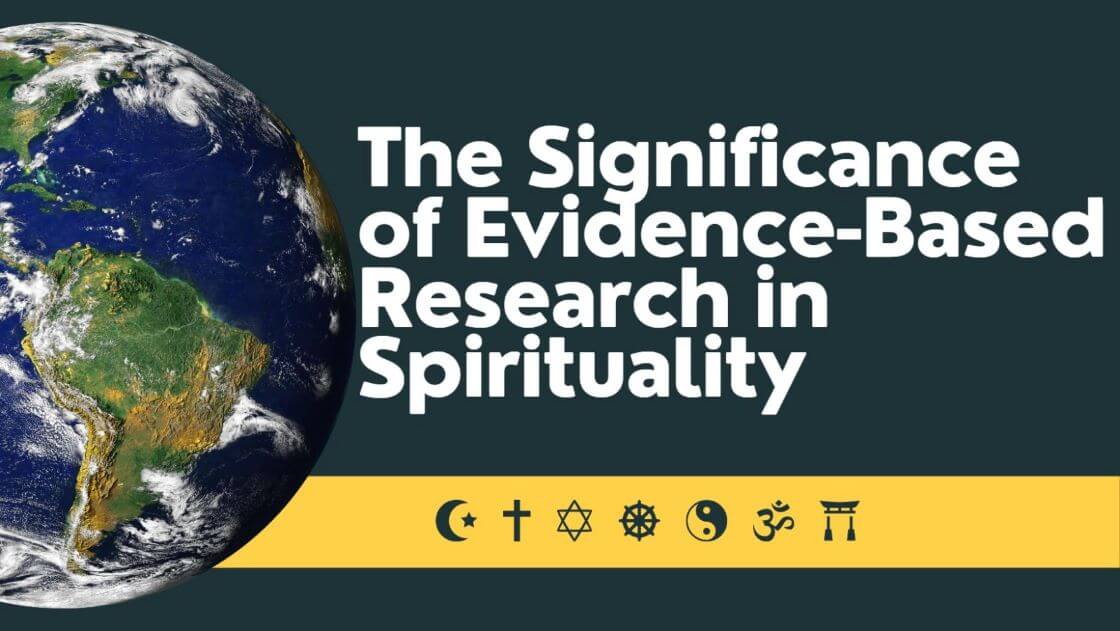The exploration and practice of spirituality have been a fundamental aspect of human existence, observed in diverse forms across cultures and throughout history. The pursuit of significance, intention, and affiliation with a higher entity is entailed. Although spirituality is frequently a profoundly personal and subjective experience, the significance of research based on evidence in this field cannot be overemphasized. Through an analysis of the advantages and drawbacks of said research, coupled with the provision of illustrations and methodologies, a more profound comprehension of the importance of evidence-based research in spirituality can be attained.
Comprehending the concept of spirituality
Prior to exploring the significance of evidence-based research, it is crucial to establish a fundamental comprehension of spirituality. The concept of spirituality encompasses a wide variety of beliefs, practices, and experiences, which is a reflection of the diverse nature of human spirituality. The process can be perceived as a profoundly individualistic expedition that encompasses the investigation of personal principles, internal discernment, and linkage to the transcendent or divine.
Spirituality can be viewed from various perspectives, including a religious emphasis or a more personalized and inclusive approach. Irrespective of the viewpoint, spirituality is a crucial aspect of individual development and welfare, providing a sense of direction, optimism, and solace during challenging times.
The Importance of Evidence-Based Research in the Study of Spirituality
The study of spirituality poses distinct challenges because of its subjective nature and the wide range of spiritual experiences. The importance of evidence-based research in this area cannot be overstated, as it is essential for improving comprehension, directing practices, and advising interventions. Through the utilization of scientific methodologies and the gathering of empirical data, scholars are able to systematically and rigorously investigate spirituality.
The primary purpose of evidence-based research in spirituality is to combat the skepticism and bias frequently linked to spiritual practices. Through the implementation of rigorous research and the presentation of strong empirical data, scholars have the ability to bolster the legitimacy and soundness of spirituality, rendering it more widely embraced within scholarly and academic circles.
Moreover, evidence-based inquiry can aid in the identification of efficacious spiritual interventions, augment mental and physical wellness, and contribute to the comprehensive advancement of evidence-based methodologies. Through the exploration of spirituality’s effects on different facets of life, such as health, relationships, and personal development, scholars can uncover potential advantages and offer guidance to those pursuing spiritual fulfillment.
Advantages of Evidence-Based Research in the Field of Spirituality
Several benefits can be derived from evidence-based research in spirituality. Firstly, it provides information on evidence-based interventions and practices. Through the examination of spiritual practices, such as meditation and prayer, scholars can recognize their potential advantages and assist individuals in their quest for spiritual development and wellness.
Secondly, evidence-based research facilitates the exploration of the effectiveness of spiritual practices. Research on mindfulness meditation has indicated its beneficial effects in reducing stress, enhancing emotional well-being, and improving cognitive function. These findings not only offer insights into the efficacy of particular practices but also promote additional investigation and enhancement of spiritual methods.
Finally, the contribution of evidence-based research toward the broader comprehension and acknowledgement of spirituality is noteworthy. Researchers utilize empirical evidence and scientific dialogue to connect spirituality and science, promoting a comprehensive and unified method for investigating human experience.
Instances of Spirituality-Based Research with Evidence
Evidence-based research has been conducted on various aspects of spirituality. Mindfulness meditation has recently garnered considerable attention, serving as a notable illustration. Several academic studies have investigated its effects of it on mental health, indicating its potential to mitigate anxiety, depression, and stress while also enhancing attention and emotional regulation.
Scholarly inquiry has also investigated the impact of prayer on health results. Research indicates that prayer may have beneficial effects on one’s overall health, including stress reduction and improvements in physiological measures like blood pressure and heart rate.
Additionally, scholarly research has examined the significance of spirituality in the process of overcoming addiction. Research suggests that the integration of spiritual practices in recovery programs can augment general well-being, diminish relapse rates, and enhance treatment outcomes.
Addressing Obstacles to Evidence-Based Research in the Field of Spirituality
The importance of evidence-based research in spirituality cannot be overstated, but there are various obstacles that must be tackled. Spirituality is frequently met with scepticism and bias due to the perception that it lacks empirical evidence or scientific validity. Interdisciplinary collaborations among scientists, spiritual practitioners, and religious scholars can facilitate mutual understanding and encourage rigorous research in the field.
An additional obstacle involves reconciling the divide between spirituality and science. Integrating spiritual concepts into scientific frameworks can enhance research designs and promote acceptance of spiritual practices within scientific communities.
Furthermore, it is imperative to maintain ethical standards while conducting research on spirituality. It is crucial to value individual autonomy, privacy, and the cultural context of spiritual practices. Prioritizing informed consent, confidentiality, and participant well-being is critical to any evidence-based research undertaking.
Conclusion
The role of evidence-based research is crucial in comprehending, validating, and refining spirituality. Through the utilization of rigorous scientific methods and the collection of empirical evidence, researchers can address skepticism, bolster credibility, and provide insight for evidence-based interventions and practices. Evidence-based research provides insights into the effectiveness and benefits of spiritual practices, ranging from mindfulness meditation to addiction recovery and prayer. Through the removal of obstacles and promotion of cross-disciplinary partnerships, the amalgamation of spirituality and science has the potential to enhance our comprehension of the human condition.
Frequently Asked Questions (FAQs)
Is it possible for spiritual experiences to be validated through evidence-based research?
It is crucial to acknowledge that spirituality is a highly personal and subjective encounter, despite the valuable insights that evidence-based research offers regarding the impacts and advantages of spiritual practices. The contribution of research toward comprehending the influence of spiritual practices on well-being is significant. However, the validation of personal spiritual experiences is a complex and individualistic process.
A: In what ways can spiritual communities derive advantages from evidence-based research?
Evidence-based research has the potential to increase the credibility and acceptance of spiritual practices among scientific and academic communities. Academic literature offers guidance on effective interventions, informs best practices, and provides evidence-based approaches to personal growth and well-being. This can potentially enhance the comprehension of spiritual communities regarding the advantages and disadvantages of their practices.
Are ethical considerations involved in conducting research on spirituality?
Indeed, adhering to ethical guidelines is necessary when conducting research on spirituality. It is crucial to respect individual autonomy, cultural context, and privacy. In research on spirituality, it is vital to uphold ethical considerations such as obtaining informed consent, preserving confidentiality, and prioritizing the well-being of participants.
What limitations exist in evidence-based research on spirituality?
Academic research on spirituality encounters obstacles as a result of the subjective quality of spiritual encounters and the challenge of measuring spiritual occurrences. Moreover, the existence of cultural and personal differences in spiritual beliefs and practices presents difficulties in establishing uniform research techniques and extrapolating results to heterogeneous groups.
A: What are some ways in which evidence-based spirituality can be integrated into one’s daily life?
Individuals can integrate evidence-based spirituality into their lives by examining research findings, experimenting with evidence-based techniques like mindfulness meditation, and participating in self-reflection and personal development. Consulting reliable sources, trained professionals, and spiritual leaders can offer valuable insights and assistance in incorporating evidence-based spirituality into one’s daily routine.
About the writer:
Arindam Bhattacharya is the Chairman of Advocacy Unified Network and an International Trade and Corporate Lawyer, Public Policy researcher, and former legislator. He strongly advocates public policy advocacy, governance, and research. Bhattacharya has authored several research papers and is associated with many international non-profit organizations working in public policy advocacy.


